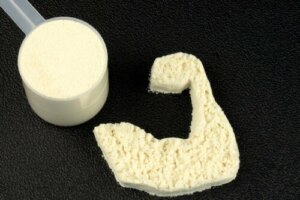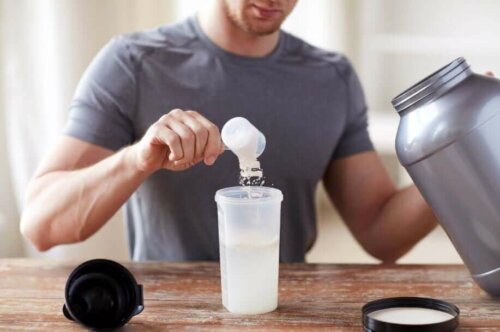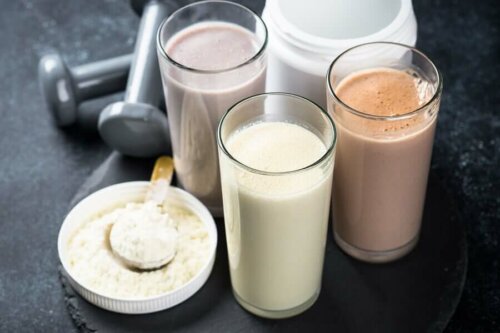What Is Whey Protein and Who Should Drink It

For decades, whey protein has only been a byproduct of the cheese-making process. As a result, nobody paid attention to is and was simply thrown away. However, this has changed.
However, nowadays this raw material is an essential ingredient for some culinary additives and is also the base of the famous whey protein shakes.
In this article, you can learn all about the properties of this food, and who should consume it in order to benefit from its medicinal properties.
What’s whey?

Sweet whey is the liquid byproduct from manufacturing cheese or casein. It has a yellow-green color, a cloudy appearance, and tastes a little sweet.
Also, it mostly consists of water and has a small amount of protein and fat. Whey is rich in vitamins A, B and C, and minerals such as iron, potassium, magnesium, calcium, and phosphorus.
Get to know these Ten Foods Rich in Potassium to Add to Your Diet
Whey protein
An increasingly popular dietary product consisting of high biological value proteins is extracted from whey. Its known as whey protein, and as mentioned above, it contains all essential amino acids, which are those that the body absorbs the best.
This milk drink, which is usually sold as a powder and combined with other ingredients, is very common among athletes due to its excellent properties.
According to the experts at Medline Plus, “whey protein is commonly used to improve athletic performance and increase strength, but the evidence to support this is conflicting.” Therefore, it’s considered it may possibly provide benefits, but these are still being studied.
Properties of whey protein
Here are the main health benefits of whey protein:
- Reduces inflammation
- Strengthens the immune system
- Fights hypertension
- Prevents type 2 diabetes
- Lowers blood triglyceride levels
- Helps to lose weight and gain muscle mass
- Helps prevent age related muscle loss, known as sarcopenia
- Lowers blood sugar levels and sweet cravings
- Increases strength, endurance, muscle mass, and recovery after training
How to drink it
It’s a good idea to follow the suggestions of some trainers to drink several whey protein shakes a day. However, never use it as a meal substitute. You should take this natural product as a supplement to reinforce sports training or drink it occasionally.
It can also be a good breakfast when combined with other ingredients, such as fruit, nuts, oatmeal, extra virgin coconut oil, etc. It tastes quite delicious when combined with banana, cacao, cinnamon, natural vanilla, red berries, or tropical fruits.
Note: you shouldn’t consume whey protein if you’re lactose intolerant.
These are the Seven Reasons Why You Should Eat More Nuts
How to choose the right whey protein

Depending on the manufacturing process, whey protein is considered to be more or less beneficial. The varieties and criteria usually taken into account are as follows:
- Whey protein isolate: obtained by removing the fat and lactose. It also has a lot of protein. However, experts don’t recommend this variety because manufacturers use acids during the process and heat it at high temperatures, so it loses many of its properties. Also, it’s usually more expensive because it’s a processed product.
- Whey protein concentrate: this product is obtained prior to the aforementioned isolated process. It contains certain amounts of fats and lactose, and less protein. However, it’s more natural and balanced.
- Organic quality: in addition to choosing the concentrated option, it’s a good idea to choose an organic product. This way you’ll be sure that the cows used to make it were fed without pesticides or herbicides. Also, the resulting product is richer in nutrients.
- Other ingredients: when choosing a brand, you have to read the label to make sure the other ingredients are also of good quality. You should avoid those containing sugar, sweeteners, and artificial colors or flavors. The best sweetener for your smoothie is stevia and the flavors should be natural extracts.
Conclusion
Are you an athlete and considering taking whey protein as a supplement? If so, you should consult your doctor or nutritionist for more information.
This text is provided for informational purposes only and does not replace consultation with a professional. If in doubt, consult your specialist.








